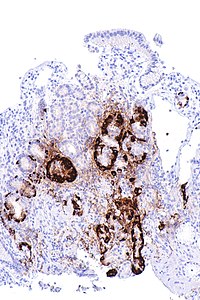
Photo from wikipedia
We demonstrate that many philosophers accept the following claim: When an aesthetic object is apprehended correctly, taking pleasure in said object is a reliable sign that the object is aesthetically… Click to show full abstract
We demonstrate that many philosophers accept the following claim: When an aesthetic object is apprehended correctly, taking pleasure in said object is a reliable sign that the object is aesthetically successful. We undermine this position by showing that what grounds our pleasurable experience is opaque: In many cases, the experienced pleasure is attributable to factors that have little to do with the aesthetic object. The evidence appealed to is a form of Higher-Order Evidence (HOE) and we consider attempts to overcome said evidence. We argue they are unsuccessful. We conclude by considering what this means for our practice of making aesthetic judgements.
Journal Title: Dialogue
Year Published: 2023
Link to full text (if available)
Share on Social Media: Sign Up to like & get
recommendations!